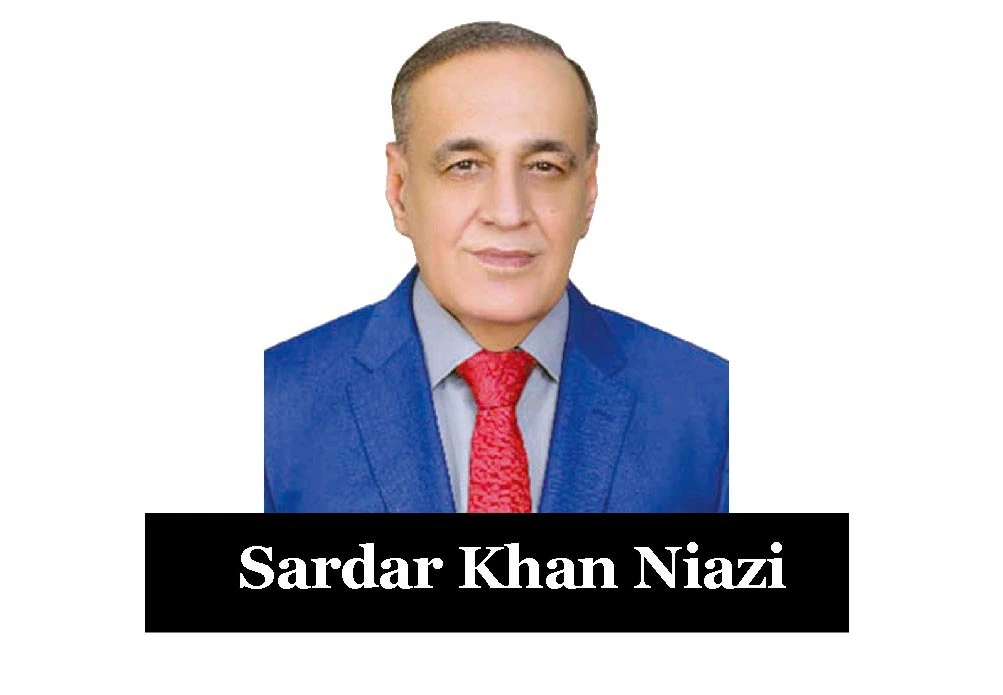By Sardar Khan Niazi
In Gaza, the shrill wail of sirens and the distant thunder of bombs have long haunted its skies. However, today, a new and more insidious sound has taken hold — the cry of the hungry. It may be quieter than an explosion, but more enduring. Iran and Israel have stopped the war. Now, similar diplomatic efforts must end the slaughter in Gaza. For months, the people of Gaza have lived under a merciless blockade and an unrelenting military campaign that has shattered homes, hospitals, and any semblance of daily life. Yet while the world watches the visuals of destruction with momentary outrage or passing sympathy, an even deeper tragedy festers in the silence: the deliberate starvation of a population. This is not just a humanitarian crisis; it is a manufactured famine. The statistics are staggering. According to the United Nations, over a million people in Gaza — half its population — face catastrophic levels of food insecurity. Children, always the most vulnerable, are dying not from airstrikes, but from malnutrition and dehydration. In Rafah, Khan Younis, and northern Gaza, parents now dig through rubble not for survivors, but for anything edible — animal feed, stale bread, even grass. The few aid trucks allowed in are a cruel joke against the scale of the need. Where Gaza once received hundreds of trucks daily, it now receives a trickle. Supplies rot at border crossings while children starve a few kilometers away. This is not a failure of logistics. It is clear that food has been made a weapon. Israel insists that its blockade targets Hamas, not civilians. However, when bakeries are bombed, agricultural land is razed, and flour is treated as contraband, it is hard to believe that narrative. Starving civilians as a method of warfare is a war crime under international law. Yet the international community’s response has been tepid, almost complicit in its silence. Western governments that once prided themselves on defending human rights have failed miserably. Their voices fall into an uncomfortable silence when confronted with Gaza. Aid agencies plead for the right of entry, but access is not given to them. The UN warns of impending famine, yet its convoys come under attack or access is blocked. Furthermore, while the bombs may for a short time cease, the siege continues its quiet, deadly toll. What makes this tragedy even more harrowing is that it is preventable. Hunger does not just happen. It is the result of choices — political, military, and moral. Moreover, right now, the global powers are choosing indifference. Nevertheless, there is still time to change course. First, an immediate and unconditional ceasefire is non-negotiable. Not just for the sake of diplomacy, but for sheer human survival. Second, full and unfettered humanitarian access needs to be granted and not negotiated like a political favor but guaranteed as a fundamental right. As a final point, there must be accountability. If war crimes are being committed, they need to undergo investigation and prosecution. Not just to serve justice, but to deter future crimes against civilians. This is not about choosing sides in a conflict. This is about choosing humanity over horror. About recognizing that starving children should never be a weapon of war. Gaza today is not just a warzone — it is a moral test for the world. In addition, right now, we are failing that test. Let us not pretend that history will be kind to this moment. Years from now, when the rubble is cleared and the graves are counted, the question will be asked: Who spoke out when Gaza starved? Let the answer not be silence. The world will not pardon those who looked away.
